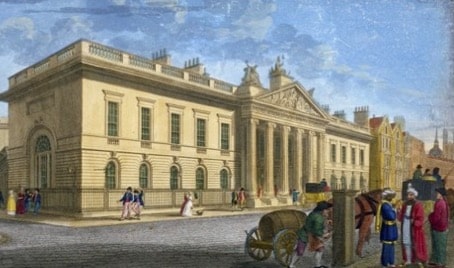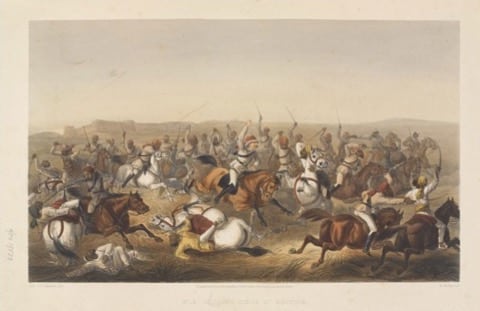This Week in History recalls memorable and decisive events and personalities of the past.
1st January 1877 – Queen Victoria of the United Kingdom is proclaimed Empress of India
Much of India has throughout its history been ruled by great empires which were sometimes led by foreigners, such as the Delhi Sultanate or the Mughal Empire, and sometimes led by local rulers such as in the case of the Maurya Empire or the Gupta Empire.
Perhaps the most famous, the most territorially expansive and in many ways the most impactful of the foreign empires was the British Empire.
Britian’s conquest of India was not the product of some epic single battle or some grand design, but rather happened piecemeal, as the British East India Company, a state endorsed company, picked apart the decaying carcass of the Mughal Empire.

The East India company was originally founded in 1600, and by 1613 had established the first (“factory” essentially a fortified trading outpost) in Gujarat in India.
Initially European outposts remained somewhat small, and the European powers were influential but not domineering players in Indian politics. Between 1613 and 1717, the British (along with a few of the other European powers) expanded the number of outposts across India and were granted many trade deals by the weakening Mughal Empire.
Things would drastically change however, when after a dispute with the ruler of Bengal in 1756 (which you can read about here: https://dailyfriend.co.za/2021/06/25/33807/) the British East India Company began to expand rapidly into the Sub-continent, assuming control over some areas and placing puppet rulers in power in others.
By the mid 1800s, the East India Company had managed to conquer almost all of the territory of the modern-Day countries of India, Bangladesh and Pakistan. India was ruled by the company through a complex web of local officials, rulers and with the extensive use of local India troops known as Sepoys.
In 1857, there was a major revolt against British rule across India, beginning with a mutiny by Company Sepoys. The revolt was not a unified uprising across India and the rebels varied in their objectives, some seeking concessions, some seeking to restore the Mughal Emperor to real power (the Mughal emperor was essentially a British puppet) and others to install some local ruler in power.

Coloured lithograph from ‘The Campaign in India 1857-58’, a series of 26 coloured lithographs by William Simpson, E Walker and others, after G F Atkinson, published by Day and Son, 1857-1858.
The causes of the revolt were many, some to do with British Indian army’s internal structure, some to do with perceptions that the British were trying to force Christianity on India, or that the British were disrespectful of Islam and Hinduism, and in some cases the East India officials had annoyed local India elites.
The revolt was eventually crushed, with significant help from the Sikhs and some of the more important British Indian vassals. The Mughal Emperor was officially dethroned. Much of the blame for the revolt was placed on the British East India Company itself. In 1858 the British government nationalised the British East India Company and assumed direct control of India.
The deposition of the Mughal Emperor left India without the Emperor on behalf of whom the East India Company had officially ruled. Political figures in Britain decided that they should take advantage of this legal power vacuum to grow the prestige of the United Kingdom.
The monarchs of Britian by the mid 1800s, largely powerless figureheads, were prevented from styling themselves Emperors or Empresses, despite their enormous empires. The term Emperor was seen as tyrannical and continental, a title which would invite the monarch to perhaps challenge the sovereignty of Parliament and the British people. This taboo did not, however, extend to the foreign subjects of the British who for the most part lacked political rights.
As such the British prime minister Benjamin Disraeli helped through parliament an act which allowed the British monarch to assume the title Emperor or in this case, as Queen Victoria was on the throne, Empress of India.

The title was officially created on the 1st of May 1876 and was conferred on Queen Victoria on the 1st of January 1877 at a mass assembly called the Delhi Durbar. Here a message was read out on behalf of the new Empress:
We trust that the present occasion
may tend to unite in bonds of close
affection ourselves and our subjects;
that from the highest to the humblest,
all may feel that under our rule the
great principles of liberty, equity,
and justice are secured to them; and
to promote their happiness, to add to
their prosperity, and advance their
welfare, are the ever present aims and
objects of our Empire.
It was at the same event that a guest and leader, of what would become the Indian National Congress, read out a speech which politely called on the Empress to grant to India the same political and social status as is enjoyed by her British subjects.
British Monarchs retained the title of Emperor of India (Kaisar-i-Hind in Hindi) until 1948.

